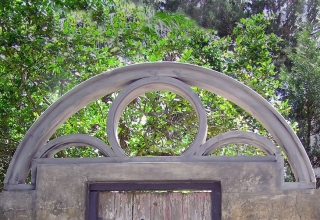
I think that in some ways the underlying training that’s the kind of academic prerequisites to being successful for physician leadership or executive leadership. Traditionally, it was the people in hard sciences – physics, biology, chemistry – and with good MCAT scores who were accepted into medical school. We focused on test scores and scholastic achievement.
There’s a kind of machismo – “I’m the team leader and a surgeon or critical care doctor and I’m the boss.” I’ve been rewarded through my life to be that way. We say “I’m going to lead a team” and it’s really “I’m the focus and people will do my bidding.”
There’s a reason that Kaiser is starting a medical school. Current medical schools are not selecting and training physicians who are good at interdisciplinary communication or who are good team members and understand some of the business of medicine and some of the ways we need to focus in a different way, on resource utilization and the importance of health and wellness, and population health. We need far more people that you (as a physician) can bring to the health of the patients.
I think you’ll see a different type of person coming into medical school – a generational change. I was blessed to go to really wonderful first-rate school and had an incredible education and through this process. I’ve realized that I came with a certain amount of emotional intelligence. I gotta tell you, as I told Rick, when I was in the academic world, before this role, I was a bit of a hothead. I got myself into a few problematic situations and after I blew up at a subordinate, an office manager said, “Everyone looks at you as a real leader but you keep doing stuff like that and you will never ever progress past where you are now.”
And when I actually became a vice president, I wrote that person and told him how impactful that moment was in my development, that getting feedback was a pivotal moment for me.
I had some of the tools that were not fully developed in some ways. I was shaken by his telling me “You can keep going down that way but you’re not going to accomplish as much as you could.”
From that moment on I changed – my wife will tell you I’ve been different.
it’s been over a decade ago now, and I still remember. The feedback set me on the path to being more attuned to “soft skills,” which I think are the skills required to be successful.
Who was the person that pulled your chain and said, “That’s not acceptable”?
It was a division manager so not a physician. It was a former hospital administrator and healthcare executive and we were in an academic setting. He’s a really competent person managing a complex division in an academic medical center. Someone who works with medical professionals and feels comfortable giving feedback to physicians. He asked me to his office, closed the door and allowed me to vent.
Then he said, “Good, now you’ve gotten that off your chest. Let me tell you what’s what.”
What did you feel after he told you?
I was furious.
He said “Yeah, yeah good get all that out now. Don’t be a jerk.”
Download Article 1K Club




















Margaret Cary, MD MBA MPH PCC
August 25, 2018 at 10:01 am
Stu – your stories are why it’s important for leaders to be self-aware! You’ve done a lot of work with your coach, Rick Auman. He’s The Best!
Joy Goldman
August 26, 2018 at 11:42 am
Great interview and leadership principles. Dr. Levine models leveraging the polarity of confidence and humility! Having worked with leaders who report to him, I’m especially appreciative!